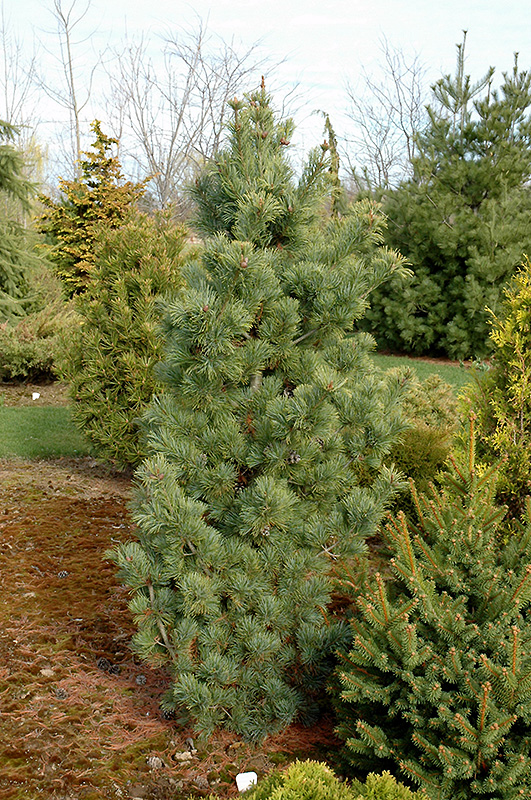Plant Finder
Gimborn's Pyramid Japanese White Pine
Pinus parviflora 'Gimborn's Pyramid'
Height: 10 feet
Spread: 5 feet
Sunlight:
![]()
Hardiness Zone: 4
Description:
This attractive variety with its irregular open pyramidal form contributes an Asian aesthetic to the garden; a great choice for rock gardens, troughs, and small landscapes; curved blue-green needles adds color interest to the landscape
Ornamental Features
Gimborn's Pyramid Japanese White Pine is a dwarf conifer which is primarily valued in the landscape or garden for its distinctively pyramidal habit of growth. It has attractive bluish-green evergreen foliage. The needles are highly ornamental and remain bluish-green throughout the winter.
Landscape Attributes
Gimborn's Pyramid Japanese White Pine is an open multi-stemmed evergreen shrub with a distinctive and refined pyramidal form. Its relatively fine texture sets it apart from other landscape plants with less refined foliage.
This is a relatively low maintenance shrub. When pruning is necessary, it is recommended to only trim back the new growth of the current season, other than to remove any dieback. It has no significant negative characteristics.
Gimborn's Pyramid Japanese White Pine is recommended for the following landscape applications;
- Accent
- Vertical Accent
- General Garden Use
Planting & Growing
Gimborn's Pyramid Japanese White Pine will grow to be about 10 feet tall at maturity, with a spread of 5 feet. It has a low canopy with a typical clearance of 1 foot from the ground, and is suitable for planting under power lines. It grows at a slow rate, and under ideal conditions can be expected to live for 60 years or more.
This shrub should only be grown in full sunlight. It prefers dry to average moisture levels with very well-drained soil, and will often die in standing water. It is considered to be drought-tolerant, and thus makes an ideal choice for xeriscaping or the moisture-conserving landscape. It is not particular as to soil type or pH, and is able to handle environmental salt. It is somewhat tolerant of urban pollution. This is a selected variety of a species not originally from North America.






